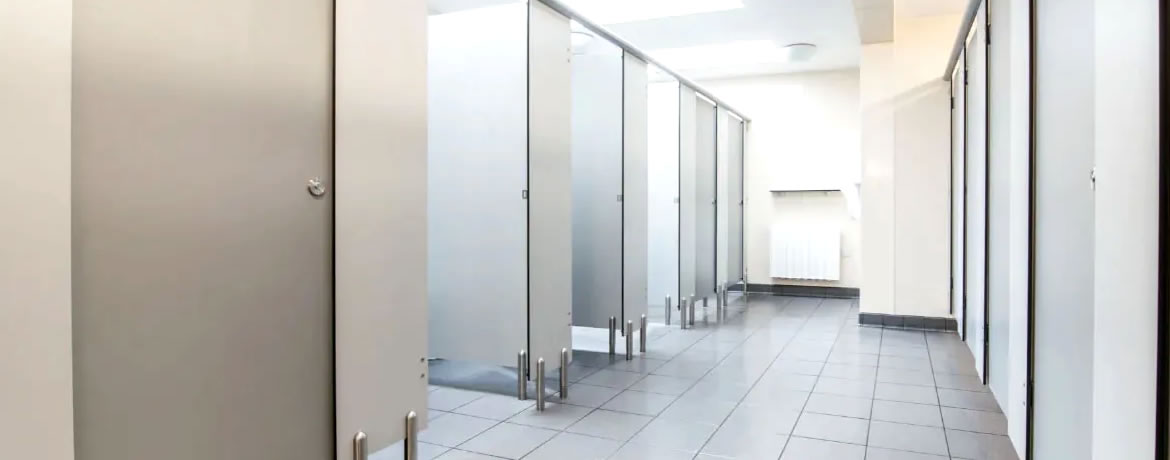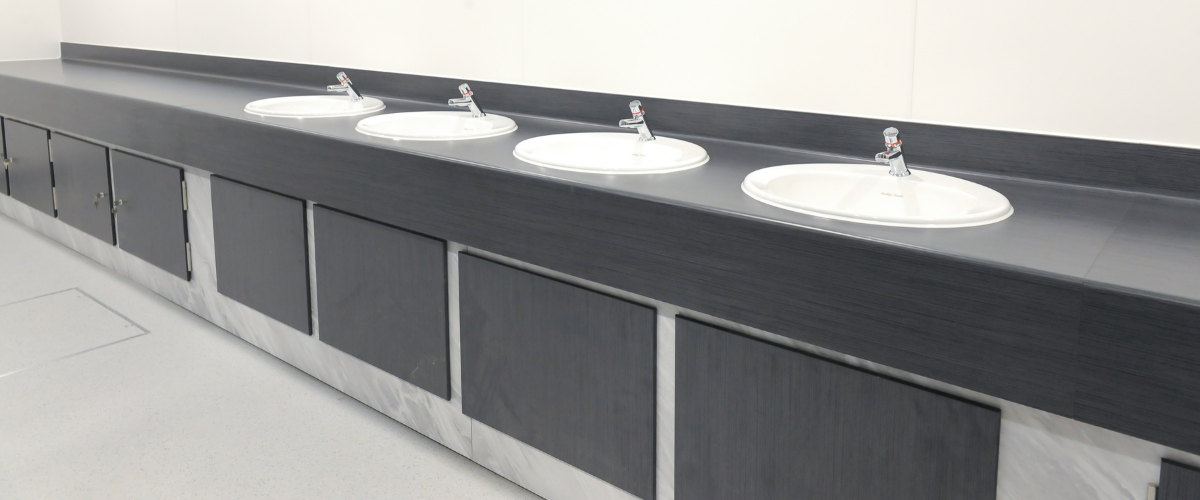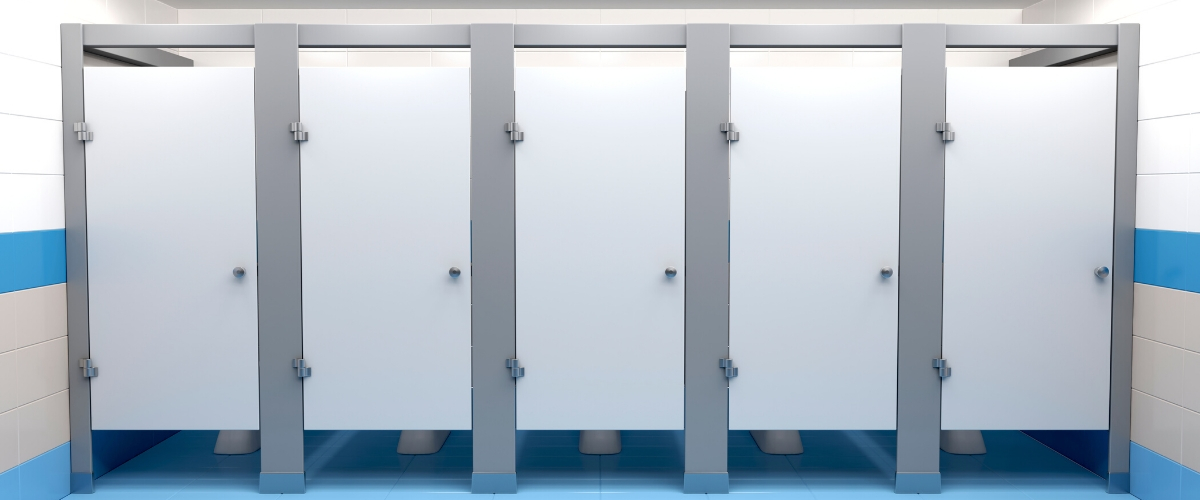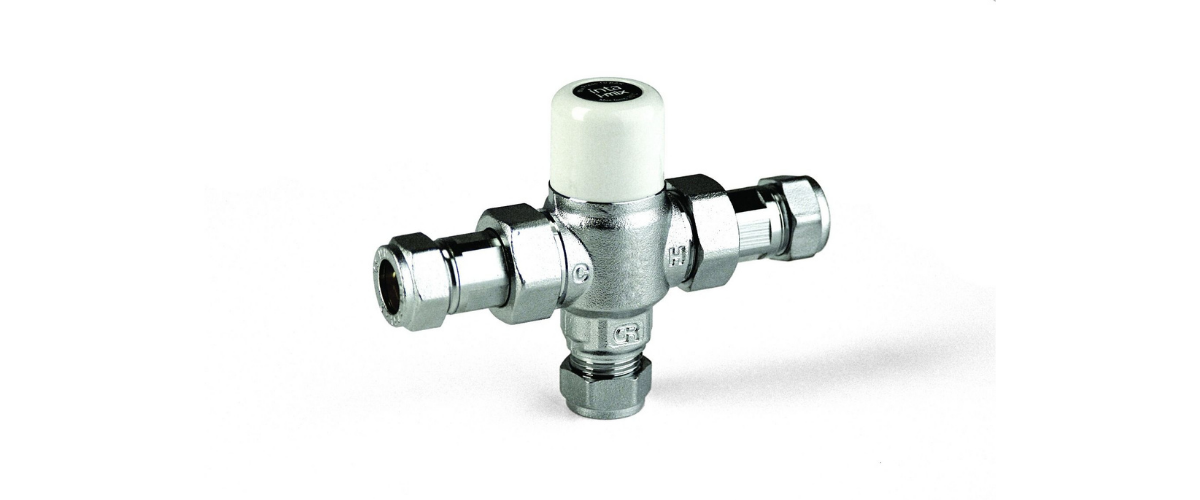Disabled Toilet Keys
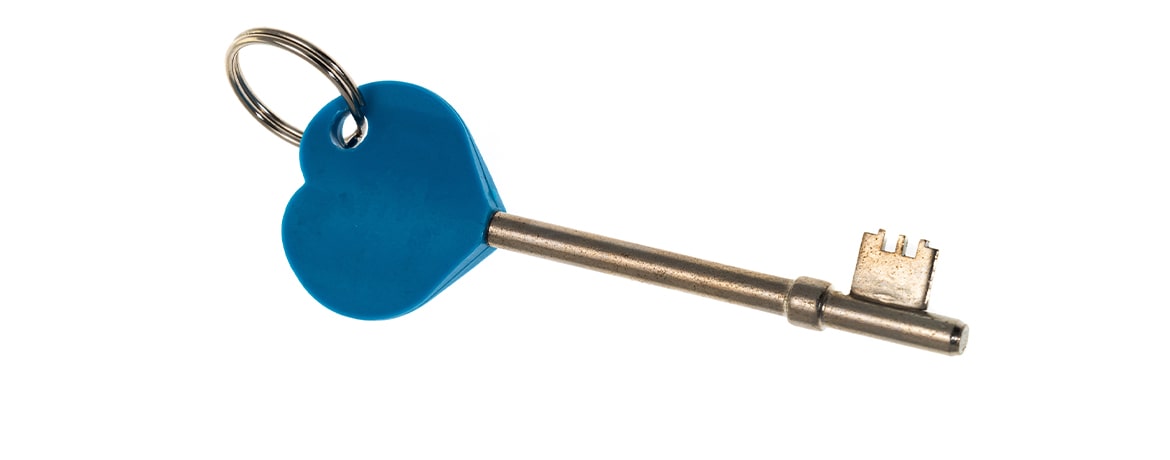
Disabled toilet keys are a subject that many members of the public do not think about, but for some people with mobility issues or hidden disabilities, it is a vital part of their daily life; and frankly something that is an absolute fundamental to allow total access (to bathroom facilities) for those individuals with additional needs for mobility issues, in accordance of The Equalities Act of 2010.
For those people and any carers where applicable, they will need to be aware of a RADAR lock and key and their most essential functions.
What is the Equalities Act of 2010?
The Equality Act 2010 is a law in the UK that replaces the Disability Discrimination Act and it is still in force today. It requires that buildings should have reasonable access for people with disabilities. The Equality Act requires that reasonable adjustments be made to ensure accessibility for people with disabilities. This means that the specific needs of building users must be considered, and any necessary adjustments must be made to meet those needs in a reasonable manner.
What does RADAR stand for?
Radar stands for The Royal Association for Disability and Rehabilitation (known as Disability Rights UK) and this key scheme was designed to ensure disabled toilets were available to those who needed them.
What is a RADAR key?
A RADAR key is approved by the Royal Association for Disability and Rehabilitation (RADAR), which means that a toilet will be always locked unless opened by a registered disabled or blind user with their RADAR key.
What is are the benefits of a RADAR key?
Permanently locked until a registered user unlocks the facility means that:
The toilet area can be kept clean for longer due to less throughput
Misuse and vandalism are prevented, especially during antisocial hours
What is a RADAR lock?
A RADAR lock is a type of locking system used in the UK for disabled cubicles. The locks are usually installed on the exterior of a heavy-duty door rather than the cubicle door itself. Like the benefits of a disabled key, only people with a RADAR key can access them. This helps to keep the toilet area clean and prevents misuse and vandalism.
The RADAR lockset consists of a 6-lever mortice lock in polished aluminium, with an external red/white indicator and an emergency access coin release. The lock comes in either a left or right-hand configuration. The door is opened from the outside using a RADAR key when the cubicle is unoccupied. Once the user is inside the cubicle, the door is locked by lifting the lever upward, which also activates the external occupied indicator. To exit the cubicle, the lever is pushed down, allowing the door to open and changing the indicator to white. Importantly, when the indicator shows red, the door cannot be opened from the outside by the RADAR key.
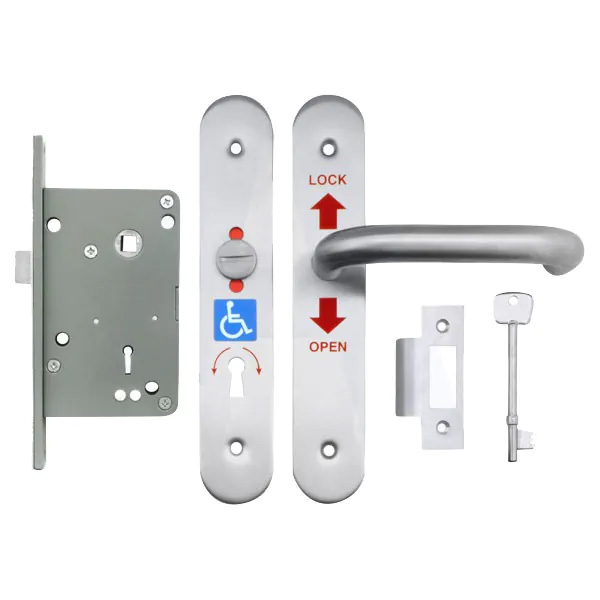

How do I get a RADAR key?
RADAR keys are available to people with disabilities who are registered with their local authority, and they can be obtained for free. Additionally, spare keys can also be purchased via Commercial Washrooms, and carers, site managers, and caretakers can also obtain access to RADAR keys to manage and clean the facilities.
Where can I find RADAR toilets?
The Royal Association for Disability and Rehabilitation (RADAR) publishes an annual National Key Scheme Guide, which provides a list of toilets in the UK that have been fitted with a RADAR or NKS lock. This guide allows individuals to plan their outings with the knowledge of where they can find secure and accessible washroom.
Who might use a Radar key?
A member of the public with mobility issues or hidden disabilities is likely to require the use of a radar key to access accessible bathroom facilities.
Are there any limitations to a radar key?
Radar keys feature a large heart shaped handle, giving easy grip, and its sturdy material enables it to be used time after time. Although the keys have been manufactured to suit many users, it is highly likely that if the individual had issues with hand immobility, then a carer would need to be present to assist in unlocking the door for them.
Care homes tend to leave their toilets unlocked for safety and accessibility reasons, but it might be deemed important to keep other facilities locked (for use by key only), such as at a shopping centre or public toilet for example, where crime (vandalism) might be more prevalent.
What types of physical conditions might hinder hand mobility?
Physical conditions, such as Arthritis and Parkinson's Disease may restrict a user from being able to operate a Radar Key. In the future, a new method of technology that enables users to unlock the door without their hands might be the answer for those with restrictions to hand movement.
What if I lose my RADAR Key?
RADAR locks and keys are part of the National Key Scheme (NKS) in the UK, which provides independent access to locked toilets for people with disabilities. Commercial Washrooms is a supplier of RADAR locks and keys, offering a range of products to ensure that disabled individuals have access to washroom facilities.
How can businesses help disabled users to thrive unaided?
A hotel, shopping centre, school, care home, workplace or apartment block are all examples of places that must have disabled facilities in place for those that require them. Notably, over the past few years, there has been a distinct moved to the more inclusive wording of Changing Places.
What should be provided by businesses?
A business would be advised to attend a disability-led health and safety course to ensure they had the full education on best practices for catering to those with mobility issues and hidden disabilities.
Unfortunately, no specific document exists as to how to comply with the Equality Act of 2010, but it is expected that by complying with the requirements set out in Document M and BS 8300 would be enough to meet the requirements of the Equality Act.
These documents provide minimum standards for accessibility and are regularly reviewed for best practice and compliance. However, it is important to note that legislation and standards can change over time. If unsure, a full site survey conducted by an industry professional, with a review of the suitability of existing facilities in line with current building regulations Approved Document M: Volume 2 and BS8300, should be completed. This will ensure that the facilities comply with the latest standards and regulations. It should also be noted that this information should be used as general guidance and is published without any warranty or obligation regarding its suitability.
In offices, British Standard BS8300 requires a minimum of one disabled toilet per floor. Ideally, these washrooms should adhere to the requirements outlined in Document-M of Building Regulations. These requirements include a specific amount of manoeuvring space within the washroom, a set of grab rails in a contrasting colour to the walls, a lever-operated tap at the sink, and an outward-opening door. Additionally, consideration should also be given to the thoroughfares leading to the disabled washroom, to ensure that disabled users can easily access the washroom without obstruction.
Here are some guidelines that businesses ought to consider:
• A toilet at the correct height for ease of wheelchair transference
• Positive door signage with inclusive language
• Grab rails and customer touch points, i.e., by the toilet, door, and basin
• A positive move to Changing Places terminology and upgrades, if the facility can accommodate more than just the toilet, and basin
Are there any grants that businesses can make the most of?
Unfortunately, not. Local authorities have access to funds that can be used to help the elderly and disabled make accessibility improvements to domestic washrooms only, so although this does not relate to businesses in general, a company offering in-home care (for example) might still like to assist a customer in their care to apply for the grant.
Why should businesses use Commercial Washrooms for their disabled facility needs?
Check out the following added benefits:
• Fast UK-Wide delivery
• Full turnkey washroom refurbishment services
• Rated excellent by our customers
Commercial Washrooms are the market leaders in washroom refurbishment services, with additional expertise in catering towards those with mobility issues who may need radar keys.
Call our dedicated team of experts on 01202 650900 or e-mail us and we can help you to build your free, no obligation quote for you.
MORE TO EXPLORE IN Related Posts
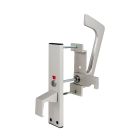
Union Disabled Toilet Door Lock
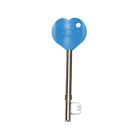
RADAR Key with Blue Heart Handle
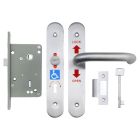
RADAR Disabled Door Lockset In Polished Aluminium


